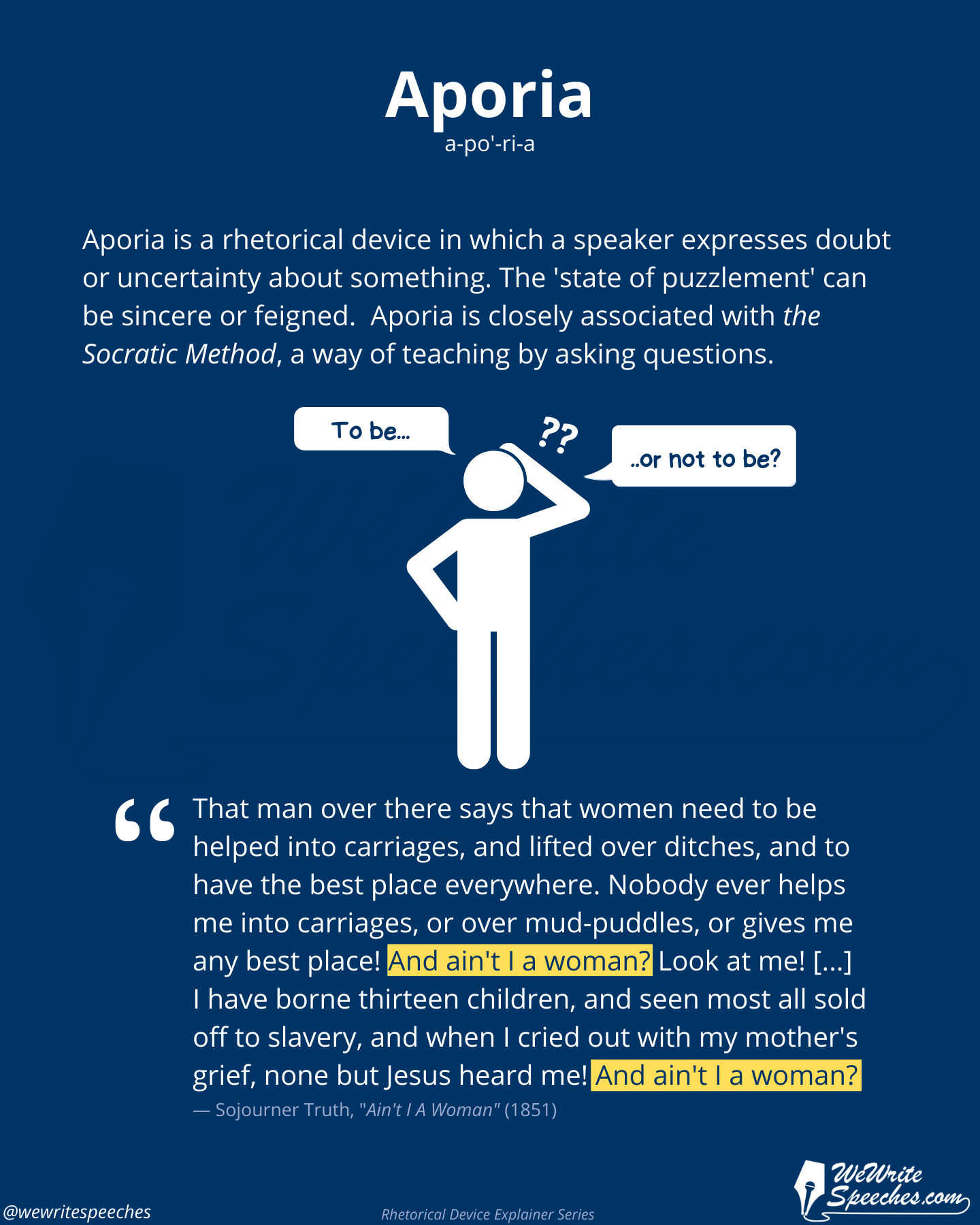Rhetorical Device: Aporia
Aporia is a rhetorical device that has been used for centuries by speakers, writers, and artists to express uncertainty or confusion; it is a state of puzzlement. It is closely associated with 'the Socrtatic method' which is the question-based method of inquiry and instruction employed by the Classical Greek philosopher Socrates. In Plato's Socratic dialogue Meno, Socrates describes how reducing someone to aporia (which comes about after all the questioning) can spark their curiosity to properly understand a subject.
In public speaking, aporia is used to express a feeling of puzzlement or doubt, often in the form of a rhetorical question. The doubt may be sincere, or it may be feigned in order to make a point. By skillfully using this rhetorical device, one can raise the stakes of a situation, convey emotion, or draw attention to a subject.
In public speaking, aporia is used to express a feeling of puzzlement or doubt, often in the form of a rhetorical question. The doubt may be sincere, or it may be feigned in order to make a point. By skillfully using this rhetorical device, one can raise the stakes of a situation, convey emotion, or draw attention to a subject.
Examples
The following excerpt is from a televised address given by Senator Ted Kennedy on the day he was sentenced to a two month suspended jail sentence for leaving the scene of an accident in which a young woman died. In it, he asked his constituents to help him make the decision of whether or not to resign.It has been seven years since my first election to the Senate. You and I share many memories -- some of them have been glorious, some have been very sad. The opportunity to work with you and serve Massachusetts has made my life worthwhile.
And so I ask you tonight, the people of Massachusetts, to think this through with me. In facing this decision, I seek your advice and opinion. In making it, I seek your prayers -- for this is a decision that I will have finally to make on my own.Edward M. (Ted) Kennedy, "Address to the People of Massachusetts on Chappaquiddick" (25 July 1969)

That man over there says that women need to be helped into carriages, and lifted over ditches, and to have the best place everywhere. Nobody ever helps me into carriages, or over mud-puddles, or gives me any best place! And ain't I a woman? Look at me! [...] I have borne thirteen children, and seen most all sold off to slavery, and when I cried out with my mother's grief, none but Jesus heard me! And ain't I a woman? Sojourner Truth, "Ain't I A Woman" (1851)
To be or not to be—that is the question: Whether ’tis nobler in the mind to suffer The slings and arrows of outrageous fortune, Or to take arms against a sea of troubles And, by opposing, end them. To die, to sleep— No more—and by a sleep to say we end The heartache and the thousand natural shocks That flesh is heir to—’tis a consummation Devoutly to be wished.William Shakespeare, "Hamlet, Act 3 Scene 1"
